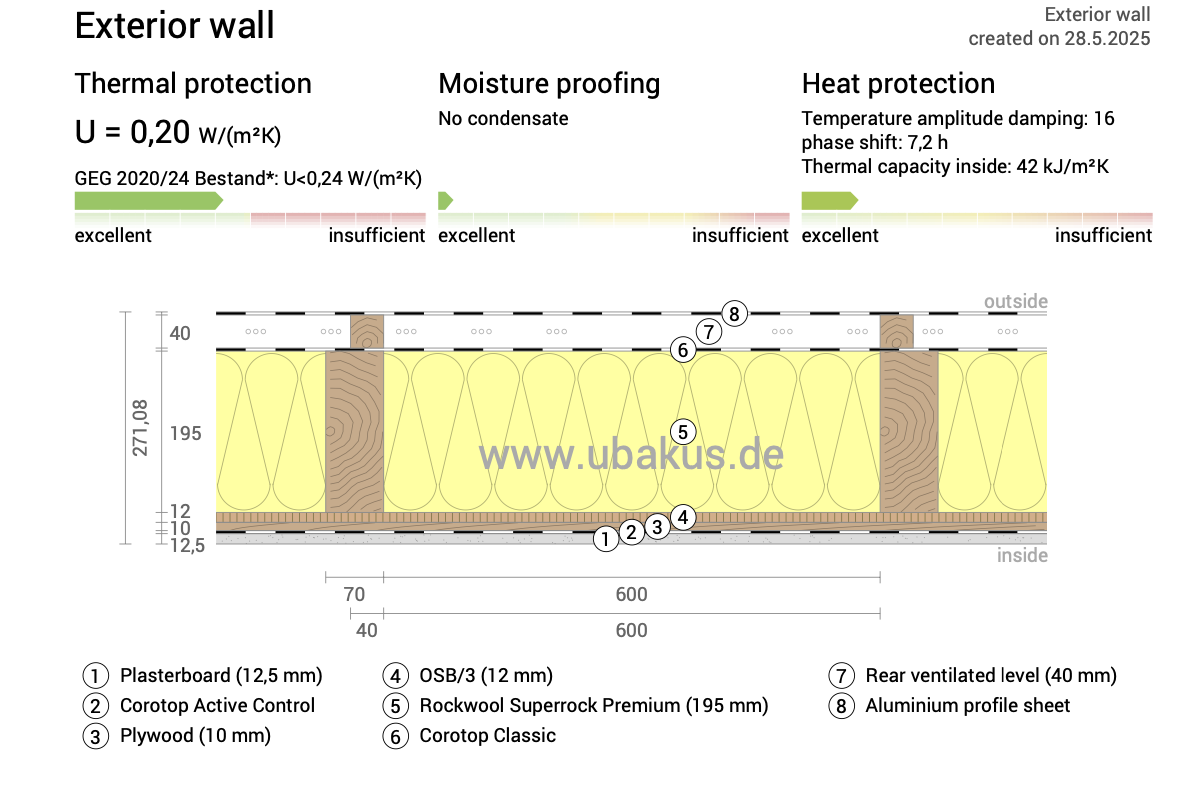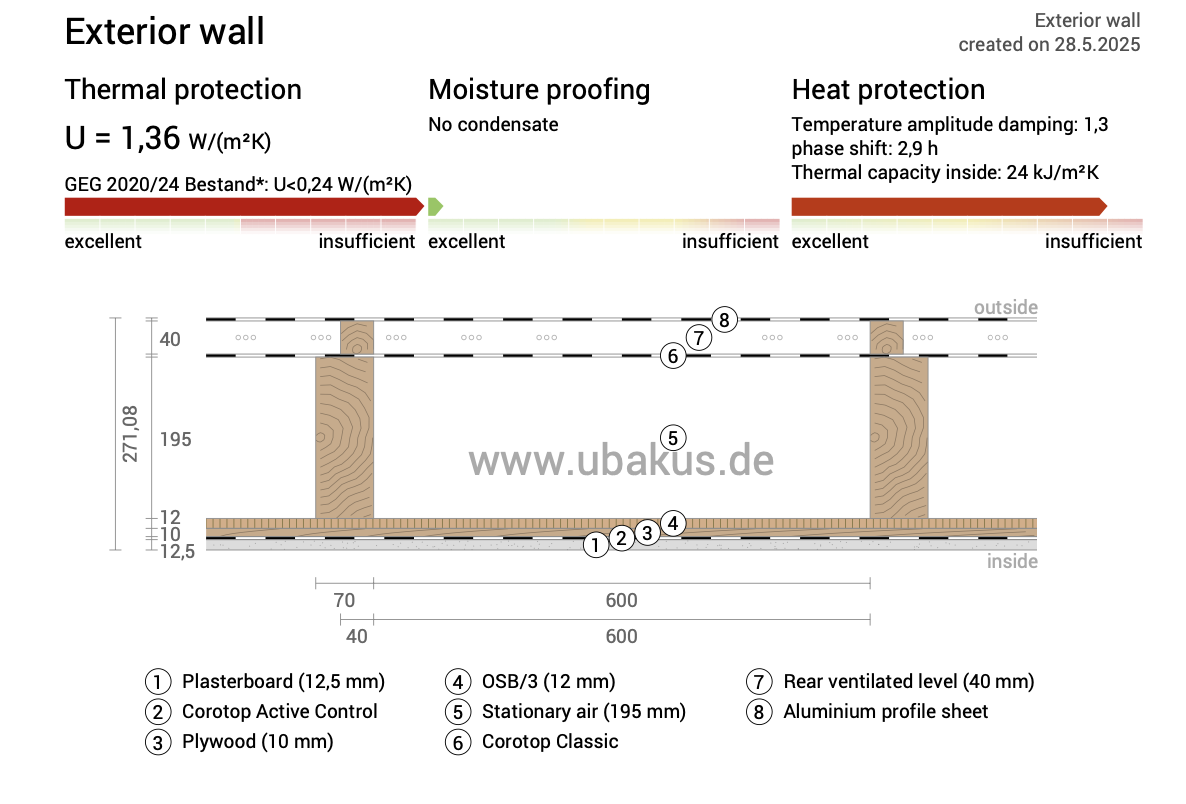
Why Good Insulation Matters, Even in Warm Southern Countries
When people hear the word insulation, many instantly picture snowy roofs and icy winters. However, in reality, insulation plays a crucial role in homes located in warm southern European countries, such as Portugal, Spain, Greece, or southern Italy. Despite the warmer climate, insulation is just as essential in the south as it is in the north, and skipping it can lead to higher energy bills, less comfort, and even health risks during extreme heat events. At Evermod, we often hear from clients in Portugal and other warm regions who request that insulation be excluded from their modular homes to reduce costs. But the truth is: a well-insulated home helps keep heat out, just like it helps retain heat in colder climates. Let’s break down why insulation is vital in warm climates and why it should never be considered optional.
What Does Insulation Really Do?
Insulation works by slowing the transfer of heat through your home’s walls, roof, and floors. In cold climates, that means keeping warm air inside. In hot climates, it means keeping the cool air in, especially when air conditioning is being used. Without proper insulation, the cool air produced by your AC quickly escapes through walls and ceilings, causing the system to work harder and consume more electricity. This not only increases your energy bills, but also puts a strain on your equipment, shortening its lifespan. According to the International Energy Agency (IEA), cooling-related energy demand is one of the fastest-growing segments of global electricity consumption. In Europe alone, cooling energy demand is expected to rise by 72% by 2050, primarily due to climate change and urbanization.
Energy Efficiency in Warm Climates
Clients in southern Europe sometimes assume that insulation is unnecessary because winters are mild. But air conditioning units use more energy than most heating systems. So if your home isn’t insulated, your AC must work overtime to maintain comfortable temperatures during the summer months. All of this is because of using AC excessively. This leads to:
- Higher electricity bills
- Increased wear on cooling systems
- Greater carbon emissions
- Lower comfort levels in your home
By the Way - Did You Know?
Studies have shown that insulating a home in a warm climate can reduce cooling energy consumption by 20–30% (source here). That translates to thousands of euros saved over the lifespan of a modular home.
The Growing Danger of Heat Waves in Europe
In recent years, heat waves have become more frequent, intense, and deadly across Europe. According to the World Health Organization (WHO), over 60,000 deaths were attributed to heatwaves in Europe during the summer of 2022 alone. Warm countries like Portugal and Spain are especially vulnerable. Prolonged exposure to high temperatures increases the risk of:
- Heatstroke
- Dehydration
- Heart attacks
- Respiratory complications
Insulation plays a critical role in maintaining safe indoor temperatures during these periods. An insulated modular home can remain 5–10°C cooler than a non-insulated one when the outside temperature surges. For elderly residents, children, or those with chronic health conditions, this difference can be life-saving.
Insulation = Comfort, Efficiency, and Protection
Keep Cool Air In, Keep Heat Out
When your modular home is properly insulated, your air conditioner doesn’t have to battle the summer sun all day long. Insulation helps trap cooled air inside, maintaining a consistent and comfortable indoor temperature. This reduces the need to constantly adjust the thermostat, saving energy and increasing the longevity of your HVAC system.
Create a Year-Round Comfortable Environment
Even in southern Europe, nights and winters can bring cooler temperatures. Insulation helps keep the cold out during these months, making your modular home comfortable year-round without extreme reliance on heating or cooling systems.
What Happens When You Skip Insulation?
Some of our clients believe leaving insulation out will save money upfront, but in most cases, the decision backfires. Here’s what skipping insulation often leads to, apart from the general AC-caused issues solely:
- Rising electricity costs due to inefficient cooling
- Overworked air conditioning units
- Shortened HVAC lifespan
- Uncomfortable, unstable indoor temperatures
- Reduced property value and market appeal
Moreover, new European building standards are increasingly focused on energy efficiency and sustainability. Homes without insulation may fall behind or even fail to meet upcoming regulatory requirements.
The Real Difference Insulation Makes: A Wall-to-Wall Comparison Example
To truly understand the value of insulation, even in warmer climates like Portugal or southern Spain, it helps to look at the science behind how heat moves through walls. Let’s take a closer look at two versions of an exterior wall, one with insulation and one without.
Heat Protection and Phase Shift
In well-insulated walls like the ones used in Evermod homes, the phase shift, which is the time it takes for external heat to transfer through to the interio,r is significantly extended. Our insulated wall, featuring Rockwool insulation (200 mm), has a phase shift of 7.2 hours. This means if the outside temperature spikes at 1:00 PM, you won’t feel that heat inside until well into the evening. Look at the example below:

In contrast, a non-insulated wall with only stationary air in the cavity shows a phase shift of just 2.9 hours. That same 1:00 PM heat peak will make its way indoors around 3:45 PM, right when many people are trying to relax or cook dinner in comfort. This added delay with insulation allows air conditioning systems to work more efficiently because the interior stays cooler for longer. According to Rockwool’s research, this can cut cooling energy demands by up to 50% in some climates. Here is an example as well:

Thermal Capacity and Comfort
The thermal capacity of the interior also improves with insulation from 24 kJ/m²K in the non-insulated wall to 42 kJ/m²K in the insulated version. This means insulated walls not only delay heat transfer but can also absorb and store more heat without raising the indoor temperature. It’s like adding a thermal buffer that makes indoor living far more stable, even during summer heat waves.
These differences are not just numbers on a chart; they directly translate into lower energy bills, fewer hours of AC use, we know, we mentioned that before, but it is a FACT! The wall with Rockwool insulation is a classic example of what we use in all classic Evermod models, ensuring that even clients in the sunniest southern regions can enjoy cool, energy-efficient modular homes year-round.
Evermod’s Insulated Modular Homes
All of Evermod’s modular models are designed with comfort, energy efficiency, and long-term sustainability in mind. Our Barn model is a great example. At 84 m², it offers 1 or 3 bedrooms and is perfect for both permanent and vacation living. With a height of 6.8 meters, it provides a spacious, airy feel, and with the right insulation, it stays comfortable and efficient in any season. We encourage all clients, especially in warm countries, to opt for fully insulated walls, roofs, and floors, even if winters are mild. It’s not just about staying warm; it’s about staying cool, cutting energy costs, and ensuring your home is future-ready.
Insulation Is an Investment, Not an Expense
The Bigger Picture
As energy costs rise and climate change accelerates, insulation becomes more than just a comfort feature, it’s a smart, future-proof investment. Whether you’re planning a full-time residence or a vacation rental, your modular home should be prepared to handle high temperatures, increased cooling demands, and sustainability standards.
Sustainability and Cost Savings
By insulating your Evermod home, you're not only creating a more comfortable living environment but also taking meaningful steps toward sustainability. You reduce your carbon footprint and contribute to Europe’s broader goals for energy-efficient housing. This smart choice helps you save money on electricity bills month after month and boosts your home’s long-term resale value.
Final Thoughts
Insulation isn’t just for the north. If you live in Portugal, Italy, or any other warm European country, choosing to insulate your modular home is one of the smartest decisions you can make. It keeps your space comfortable, protects your health during extreme heat, and dramatically improves energy efficiency. Explore our modular home models and talk to our team to ensure your new unit is prepared for every season, hot or cold.